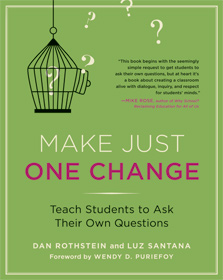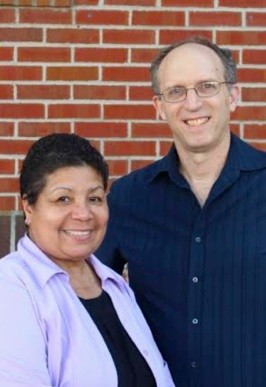Hello everyone! InQuiring minds is back, giving you a snapshot of recent blog posts, articles, and interesting thought pieces that have grabbed our attention. We hope you will share with us any comments or opinions you may have. As always, let’s keep the conversation going on our Facebook page and @RightQuestion or #Teach2AskQuestions.
Teaching Students to Ask Their Own Questions:
We believe that formulating one’s own questions is the single most essential skill for learning, and it should be taught to all students. What would classrooms look like if teachers asked fewer questions and students asked more? With this in mind, check out these interesting links below:
- In “The Case for Curiosity,” Susan Engel argues, “what we admire and what we deliberately cultivate aren’t the same” when it comes to curiosity in students. She makes the case that if one believes that curiosity is a driving force behind student learning, then we “should pay serious attention to helping students acquire or retain a thirst to find out about the world.”
- John Douglas writes for his blog, NewEdPath, that teaching students to ask their own questions gives them a skill that will “transcend knowing the capital of Botswana or even knowing how to spell ‘daiquiri.’” He also wonders what schools would look like if there was more of an importance placed on students’ questions rather than their ability to answer someone else’s question.
- An award-winning civil-engineering educator, Jim Hanson, Ph.D, believes that teaching is about giving students “the ability to ask the right questions.” “My job is to get students to think creatively,” says Hanson, “It’s those out-of-the-box concepts that excite me and bring me to the classroom with a sense of wonder.”
- Peter Kaufman, in a post for “Everyday Sociology Blog,” begins by saying that he hopes his students leave his classroom everyday with “more questions than answers.” While he points out that this may seem “counterintuitive,” he argues “that if students want to take what they’ve learned in class and extend it into their social worlds then they will need to know how to ask questions.”




The Right Question Institute seems to me to have a great deal in common with the work we in the pre-college philosophy movement are doing. Our new national organization, PLATO (Philosophy Learning and Teaching Organization), is focused on children’s questions and the importance of inquiry and wondering.
I recently wrote a blog post about asking questions in which I mentioned your work: http://philosophyforchildren.blogspot.com/2013/03/asking-questions.html
It would be wonderful to have someone from your organization speak at one of our conferences or to work together in some other way!
Jana,
So great to hear from you. We really enjoyed reading Amy Sandoval-Reed’s blog post and now are delighted to read yours. Clearly, we share a passion for question, inquiry and intellectual development for children and for all people. Let’s definitely stay in touch. I hope you join our network. We’ll be sending out info about our upcoming Summer Seminars to network members first and we will be eager to hear more about your work.
Thanks again for writing.
Dan